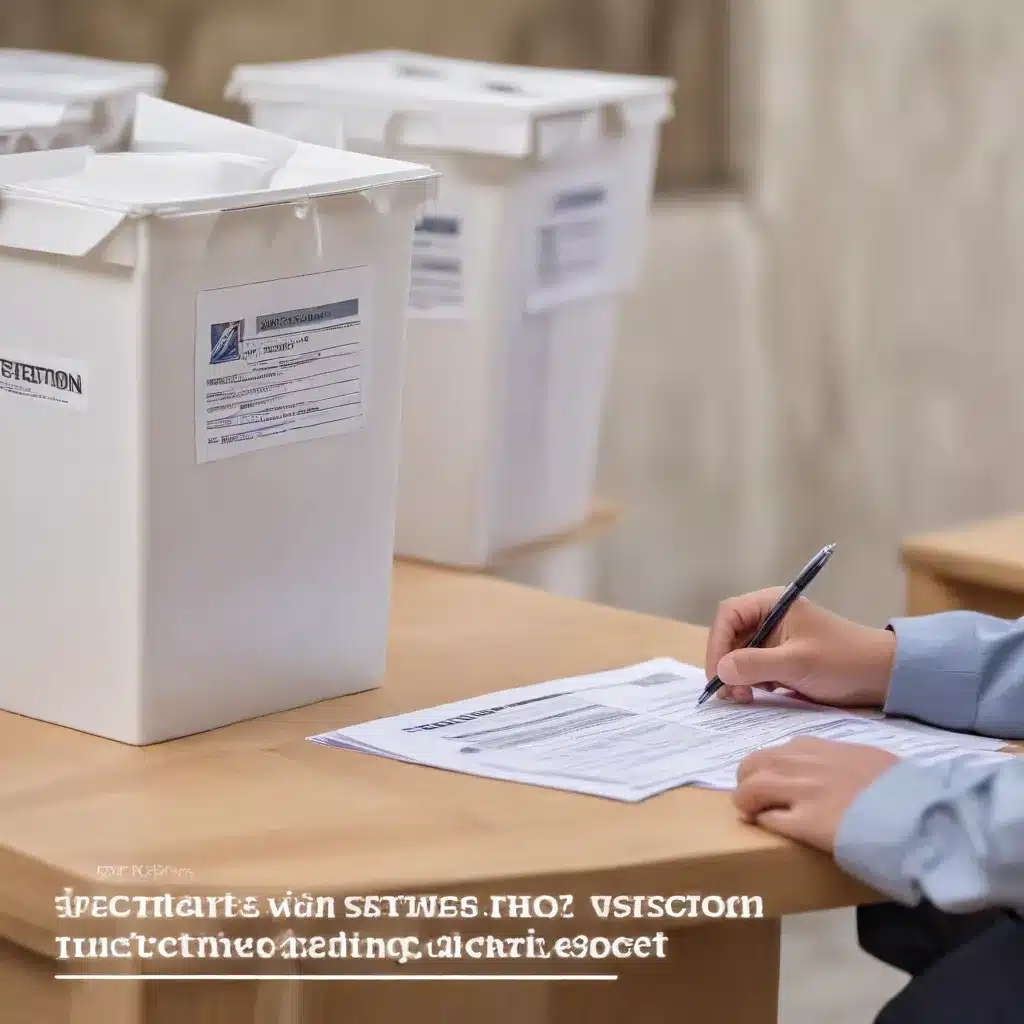
Strengthening Electoral Integrity and Democratic Processes Across the EU
As a seasoned IT professional, I am honored to share insights on the recent Election Assessment Mission (EAM) conducted by the non-partisan civil society organization Election-Watch.EU. This comprehensive report examines the 2024 European Parliament (EP) elections across all 27 EU member states, highlighting key findings, good practices, and recommendations to advance electoral reforms and uphold democratic principles.
Empowering Citizen-Led Election Observation
Election-Watch.EU’s EAM was a pioneering initiative, marking the second time the organization has deployed independent, international election observers to assess the integrity of the EP elections. This citizen-led approach aligns with global efforts to reinforce democratic electoral processes and ensure adherence to international human rights standards.
The mission’s assessment was guided by six core principles: integrity, inclusion, accountability, transparency, equality, and resilience. By thoroughly examining the electoral landscape in each member state, the EAM team was able to identify both areas of progress and ongoing challenges, ultimately providing a reference point for future reforms.
Harmonizing Electoral Regulations Across the EU
One of the key findings highlighted in the report was the need to address inconsistencies in national electoral regulations across the EU. While member states have made strides in aligning their electoral systems, the EAM team found that a lack of harmonization in areas such as voter and candidate registration, campaign finance, and the inclusion of specific voter groups (e.g., persons with disabilities, national minorities, mobile EU citizens) can undermine the overall integrity of the European electoral process.
The report recommends that the European institutions and member states work collaboratively to identify and resolve these discrepancies, ensuring a more cohesive and equitable electoral landscape. By establishing common guidelines and standards, the EU can strengthen the democratic foundations of its elections and promote greater public trust in the process.
Enhancing Transparency and Accountability
Transparency and accountability emerged as critical areas of focus for the EAM. The report emphasizes the importance of improving the transparency of political campaign financing, including robust mechanisms for monitoring and reporting on campaign expenditures and donations. Additionally, the EAM team highlighted the need for enhanced transparency in the publication of detailed election results, enabling citizens and civil society organizations to better scrutinize the process.
To further strengthen accountability, the report recommends the implementation of a robust mechanism to handle electoral complaints and ensure independent election observation. By empowering citizens and civil society groups to actively participate in the oversight of elections, the EU can foster a more inclusive and responsive democratic system.
Promoting Digital Resilience and Media Freedom
As the digital landscape continues to shape political discourse and electoral processes, the EAM report underscores the importance of addressing emerging threats to electoral security and data protection. The team identified the need for the EU and member states to enhance their digital resilience, implementing effective measures to combat online disinformation, safeguard voter data, and regulate the use of social media platforms during campaigns.
Closely tied to digital resilience is the issue of media freedom. The report emphasizes the critical role of an independent and pluralistic media in ensuring transparency and accountability during elections. Recommendations include strengthening legal and regulatory frameworks to protect journalists and media outlets, as well as fostering greater collaboration between media, civil society, and electoral authorities.
Advancing Inclusion and Equality
Ensuring the inclusion and equal participation of all citizens in the electoral process emerged as a key priority for the EAM. The report highlights the need for member states to enhance accessibility for persons with disabilities, both in terms of voter registration and the casting of ballots. Additionally, the team identified the need to promote the inclusion of underrepresented groups, such as national minorities, youth, and mobile EU citizens, in the electoral process.
To address these challenges, the report recommends the harmonization of voter eligibility criteria and the implementation of targeted outreach and education campaigns to engage these communities. By embracing inclusive practices, the EU can work towards a more representative and equitable electoral system that empowers all citizens to exercise their democratic rights.
Highlighting Good Practices Across the EU
While the EAM report identified areas for improvement, it also showcased several good practices across the EU that can serve as models for other member states. For example, the report highlighted the use of innovative voter education initiatives in some countries, such as interactive online platforms and targeted campaigns aimed at engaging youth and first-time voters.
The report also recognized the efforts of certain member states in enhancing the European character of electoral campaigns, fostering a stronger sense of pan-European identity and democratic participation. By sharing these successful initiatives, the EAM report encourages the exchange of knowledge and the adoption of effective strategies to strengthen the overall integrity of European elections.
Conclusion: Strengthening the Foundations of European Democracy
The Election-Watch.EU EAM report serves as a valuable resource for policymakers, civil society organizations, and citizens alike, providing a comprehensive assessment of the 2024 European Parliament elections and a roadmap for future electoral reforms. By addressing the report’s recommendations, the EU and its member states can work towards a more harmonized, inclusive, and resilient electoral system that empowers citizens and upholds the principles of democratic governance.
As an IT professional, I encourage readers to visit the ITFix.org.uk website to explore additional resources on technology trends, IT solutions, and computer repair best practices. By staying informed and engaged, we can all play a role in strengthening the foundations of European democracy and ensuring the integrity of our electoral processes.












